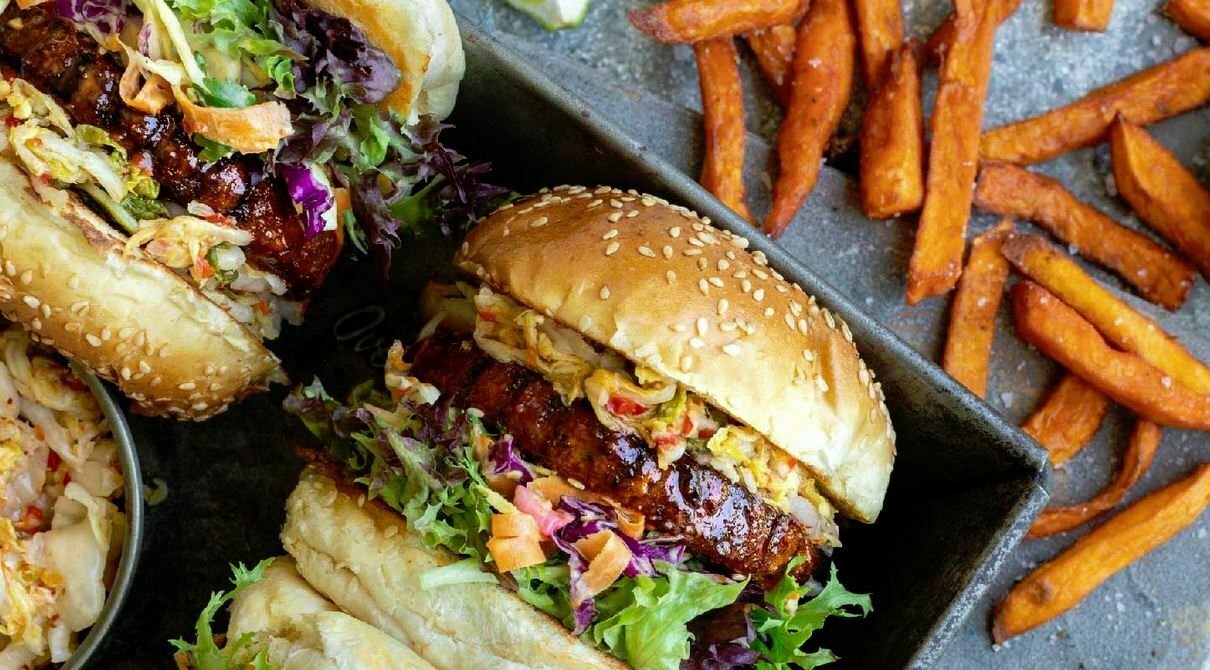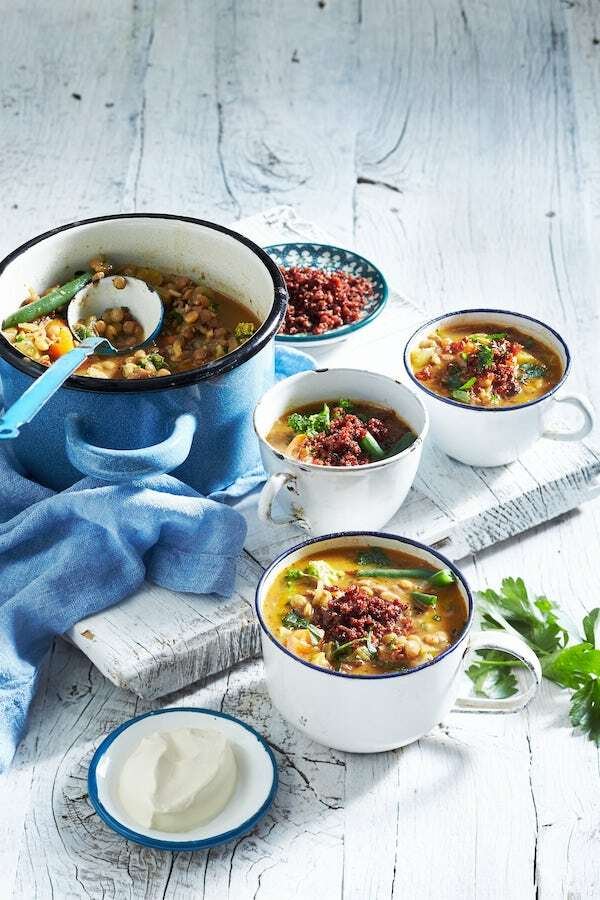The latest research shows Australia is at the forefront of the move towards plant-based eating and veganism – second only to the UK when it comes to the number of people who identify as being vegan/plant-based eaters. So, on World Vegan Day it’s good to take a look at why so many people are making this shift and what are some of the myths and preconceptions about it.
Interest in veganism around the world has doubled during the past five years and shows no signs of slowing down. According to a recent industry report (released by thinktank Food Frontier and Deloitte Economics), the number of plant-based meat products on Australian supermarket shelves doubled in 2020, and the plant-based meat industry has the potential to grow to a three-billion Australian dollar industry by 2030.
But while Australia has one of the largest vegan communities in the world – largely fuelled by environmental concerns – Australians still consume more meat per capita than pretty much anywhere else in the world.
As plant-based eating has become more mainstream around the world, the movement is no longer just for hardcore vegans and vegetarians but instead, consists of many millennials who are ‘plant-based curious’ and looking to make healthier and more ethical food choices.
Despite the wider acceptance of the vegan diet, misconceptions about whether it constitutes a well-rounded, nutritious and safe diet for ourselves, our family and the planet still remain.

Tammy Fry dispels some of the myths around plant-based eating
Tammy Fry, a certified nutritionist and co-founder of The Fry Family Food Co., is a passionate advocate for plant-based eating and says the myths about vegan diets are still believed by many: “These days, many of the myths surrounding plant-based eating can quickly circulate in the public and create uncertainty, which, once it takes root, is extremely difficult to dispel,” she said..
“There are ongoing assumptions that the only source of protein comes from meat, and that the only source of calcium is from dairy, which is far from the truth. For me, it’s about opening people’s minds to alternatives that can still provide your body with the nutrients it needs and giving them the choice.
“While a plant-based diet may not be for everyone, there are certain benefits that can help us lead a healthier, happier and kinder life,” Tammy adds.
The Top Five most Common Myths about a plant-based diet and why they are myths, from Tammy Fry:
- Myth #1: If you’re only eating plants, you won’t get enough protein
False! If your kilojoule intake comes from fruit, vegetables and a wide variety of plant-based foods that are rich in all essential amino acids to form a varied and balanced diet, you will get enough protein. Foods such as chickpeas, lentils, quinoa, tofu and edamame are great sources of protein. A simple meal of baked beans on toast provides all the essential amino acids found in a typical meat dish.
- Myth #2: A plant-based diet is impossible for kids
One way to get kids interested (and loving!) vegetables is involving them in the selection, preparation and cooking process. It’s less about persuading kids to eat their greens and more about finding kinder alternatives that offer the same delicious taste without appearing like rabbit food. Gradually introduce plant-based alternatives by making familiar, much-loved meals, such as veggie burgers and lasagna.
- Myth #3: Eating soy increases your risk of developing cancer
Several studies show that soy, a staple of East-Asian diets, has been linked to decreasing cholesterol and the risk of breast cancer.[2] Soy is an excellent source of protein and calcium amongst other essential amino acids and can be found in whole soy foods including edamame, soy milk, tofu and tempeh.
- Myth #4: If you don’t eat meat, you’ll become anaemic
Iron deficiency (anaemia) affects around 34 per cent of women and 5 per cent of men in Australia.[3] Leafy greens, lentils, fruit, nuts and seeds are rich sources of ‘non-heme iron’, while meat contains ‘heme-iron’ which is more readily absorbed by the body. Iron absorption can be enhanced by eating foods that contain vitamin C, such as potatoes, strawberries and (of course) oranges.
- Myth #5: B12 is only found in animal products
B12 helps keep nerves and blood cells healthy, and for omnivores this is typically consumed via animals who drink dirtier water and foods with high levels of B12, which is then absorbed by your body. While it is not found in plant-based foods due to it being stripped from plants as part of the sterilisation and thorough cleaning followed by manufacturers and products, it can be consumed via a plant-based diet. Supplements and foods fortified with B12 such as some plant milks, soy products and cereals can help ensure our bodies receive the vitamin.
Now, more than ever, there are plenty of delicious meat-free options for people who choose a plant-based diet.
[1] https://www.chefspencil.com/top-most-popular-countries-and-cities-for-vegans-in-2020/
[2] https://nutritionstudies.org/soy-myths-vs-facts-is-soy-healthy-or-not/
[3] Figures taken from the Royal College of Pathologists of Australia, “Position Statement: The Use of Iron Studies, Ferritin and Other Tests of Iron Status”, September 2017 and originally sourced from Australian Bureau of Statistics data, 2012, and H.E. Salvin, S.R. Pasricha, D.C. Marks& Speedy, J. “Iron deficiency in blood donors: a national cross-sectional study”, Transfusion 54(10) 2014.
For more from The Carousel on the vegan diet, visit here.
















